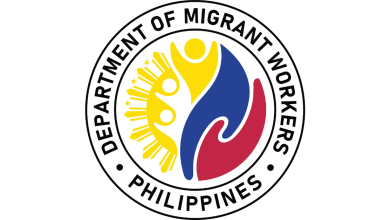The UAE health authorities has announced a series of conditions and measures, regulating the travel of citizens and residents alike effective June 23.
In an online press briefing Wednesday night, Dr Saif Dhaheri, spokesperson for the National Emergency Crisis and Disaster Management Authority (NCEMA), said they classified travel destinations into three categories, namely: low risk nations to which all citizens and residents are allowed to travel; medium-risk nations to which only a limited category of citizens are allowed to travel to in case of emergency; and high-risk countries to which travel is categorically banned.
Under the medium-risk nations category, travelers from the UAE will only be allowed to fly to their destination for necessary medical reasons, visiting first-degree family members, or for military, as well as diplomatic and official missions.
Dr. Dhaheri added that all travelers must have complied with a set of protocols before departure and upon return to the UAE, including medical tests, travel registration, quarantine, self-follow-up of traveler’s health status and awareness of the precautionary measures.
Elaborating on these mandatory prerequisites, Dr. Dhaheri outlined them as follows:
1. All citizens and residents have to apply for a travel request through the Federal Authority for Citizenship and Identity’s website and register in the Twajudi service prior to travel.
2. All travelers to undergo a Covid-19 test before travel as the health regulations in the country of destination may require a test result which dates back to no more than 48 hours before the travel date. The test result has to be displayed at the country’s airports via the Alhosn app. Only travelers who tested negative for the virus will be allowed to travel.
3. People aged over 70 years old will not be allowed to travel. People with chronic diseases are also advised not to travel for their safety.
4. An international medical insurance covering the country of destination is a must have for all travelers.
5. Everyone must comply with preventive measures at the airports, including wearing face masks, gloves, constant sanitization of hands and maintaining safe physical distance.
6. People with more than 37.8 C or higher temperature or those with respiratory disease symptoms will be isolated. Any persons suspected to have contracted Covid-19 won’t be allowed to travel to ensure his and other’s safety.
7. Emirati and resident travelers must fill the required individual health accountability form, which includes an agreement to undergo quarantine upon return and not to go to destinations other than the ones applied to.
He also highlighted the mandatory provisions to be adhered to upon arriving at the country of destination and before returning to the UAE:
1. If the traveler feels unwell, they should go to the nearest health center and use their health insurance.
2. If travelers have a test for Covid-19 in the country of destination and the result is positive, they should notify the UAE embassy at that destination, either through Tawajudi Service or by contacting the embassy. The UAE mission will ensure that Covid-19 patients are taken care of and the UAE Ministry of Health and Prevention is notified.
In terms of the mandatory provisions to be adhered to upon return to the country, health authorities laid out the following protocols:
1. Everyone must adhere to wearing face masks at all times upon entry.
2. All travelers must show a special form of their itinerary, in addition to the health status form, along with their identification documents.
3. Travelers must ensure they download and activate MoHAP’s ALHOSN app on their mobile phones.
4. After return, the traveler must undergo a home quarantine for 14 days after the Covid19 test, which could decrease to seven days for travelers arriving from countries with lower risk or for professionals in critical sectors.
5. Travelers with any symptoms must commit to undergo Covid19 tests in an accredited medical facility within 48 hours of entering the country.
6. If it is not possible to undergo home quarantine, the traveler must commit to self-quarantine in a facility or a hotel and pay all expenses.
Dr. Dhaheri also outlined additional provisions for those on study scholarships, those on medical treatment trips, members of the diplomatic missions and those on business trips, whether from public or private sectors. They should coordinate with the respective authorities.
He added that the procedures will be updated regularly, based on new developments and the health situation on the ground.



